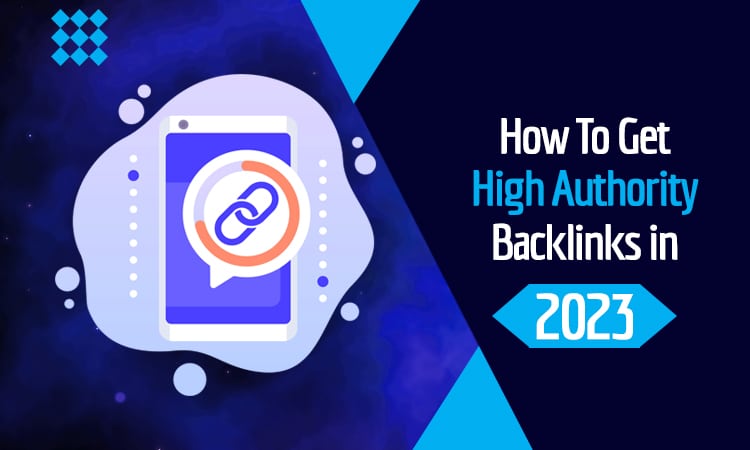How To Land Authority Links.
When it comes to search engine optimization (SEO), one of the most important factors is link building.
High-authority links are particularly valuable and can significantly impact your search rankings.
However, building them can be challenging, and there are potential pitfalls to be aware of.
In this article, we’ll explore what high-authority links are, why they’re important, and proven strategies for building them effectively.
If you don’t have the time, resources, or desire to run your own campaign, get in touch to learn more about our custom outreach link building service, which can help you land relevant, authority links at scale.
What Are High Authority Links?
High-authority links come from websites that search engines consider authoritative and trustworthy.
These are typically websites with a high domain authority score, a measure of a website’s overall strength and credibility.
Examples of authoritative websites include major news outlets, educational institutions, government websites, and other established, reputable organizations.
Wait… Does Google Use Domain Authority To Rank Sites?
Not exactly.
Domain Authority (DA) is a metric developed by Moz, a popular SEO software provider. It is designed to estimate how well a website is likely to rank on search engine results pages (SERPs) based on factors such as link popularity, content quality, and others.
While Moz’s DA metric is not the same as Google’s PageRank, which is a proprietary algorithm that Google uses to rank web pages, many domain authority checker tools attempt to estimate Google’s PageRank score by analyzing various factors such as the number and quality of inbound links to a website, the relevance of its content to specific search queries, and other factors.
These tools use complex algorithms that consider various factors to calculate a website’s DA or DR score. The DA/DR score ranges from 0 to 100, with higher scores indicating a greater likelihood of ranking well on search engine results pages.
However, it is important to note that link authority is just one of many factors that Google uses to rank web pages. Other factors, such as on-page SEO, site speed, and mobile-friendliness, also play a crucial role in determining a website’s ranking on search engine results pages.
Why Is High Authority Link Building So Important?
High authority links can have a significant impact on your search engine rankings, particularly if they come from websites that are relevant to your niche or industry.
They can also help establish your website as a trusted and authoritative source of information in your field, which can, in turn, attract more traffic, links, and social shares.
As your authority grows, you will start ranking faster and more often for valuable, relevant keywords.
Search Engines Reward High Authority Sites
Take a site like Amazon for example. They have thousands of pages that rank very well, even though those pages do not have links pointing to them. This is because of the sitewide domain authority they have built, alongside their general implementation of on-page SEO best practices.
However, it’s important to note that not all backlinks are created equal. Some types of backlinks can harm your search engine rankings.
This is why it’s important to focus on building high-quality, relevant, and trustworthy backlinks that are likely to improve your search rankings and overall online reputation.
What Should Be Avoided On The Quest for High Authority Inbound Links?
Even with the best intentions, you can make some mistakes that come back to haunt you, especially if you are not deeply familiar with link building.
One of the more common issues we see (and hear about from people coming over to us from other link-building services) is that they got links with “good” domain authority scores, but their rankings didn’t improve.
As we mentioned above, metrics like DA or DR are just educated guesses from link-building tools that seek to provide general guidance on authority and link quality. If you rely on them as the only metric, you can end up with a lot of links that look good on paper but don’t help your rankings.
One example of this is getting backlinks from sources that are not relevant to your website’s content or niche. Google considers link relevance when ranking websites, so it’s important to acquire links from related sources.
Another mistake that can come back to bite you is overusing exact match anchor text. This can trigger a penalty from Google, as it may be seen as an attempt to manipulate search engine rankings, even if your link comes from a high-authority site. It’s better to use a variety of anchor text sparingly.
However, when done right, there is no denying the value of getting links from high-authority websites, so let’s discuss how you can land some for yourself.
Proven Strategies for Successfully Landing High Domain Authority Links
With the right tactics, persistence, and a little luck, you can secure high-quality links for your business or blog. While we can’t help you with persistence or luck, here are some tactics that we have used to secure links for our clients on authority sites.
Create Research and Statistical Posts
We started with this one because it works extremely well for passive link building. If you want high authority sites to link to you naturally, you need to give them a reason.
Many large sites have a full content team, enabling them to produce in-depth content at scale. What they don’t have access to is your company’s firsthand statistics, research, and other data.
Since you are the source of the information, you will be cited and linked from most sites that mention it.
Even if you are not sitting on a lot of unique data, you can still leverage this tactic by curating relevant stats and research about your industry.
Replace Broken Links
One effective way to build high authority backlinks is to find broken links on other websites and offer to replace them with links to your content.
This strategy involves identifying websites with broken links (those pointing to pages that no longer exist or that return error messages) and reaching out to the website owner or webmaster to offer a replacement link to your content that is relevant and valuable to their audience.
To find broken links, you can use a tool like Broken Link Checker or Ahrefs. Once you’ve identified broken links on relevant websites, you can reach out to the website owner or webmaster with a friendly email that explains the broken link and offers your content as a replacement.
We have landed some amazing links via broken link building, but it requires a LOT of outreach to scale. If you have a small team, don’t start with this one first.
Guest Post/Blogger Outreach Link Building
Guest posts typically include an author bio link to the contributor’s website within that section. Blogger outreach links are ghostwritten and link to your site from the main body of the content.
If search for a guest posting service, you are going to find sites that use the term interchangely with blogger outreach. This is because large-scale guest posts are frowned upon and most people searching mean to find blogger outreach services instead.
Both are effective ways to build high-authority backlinks by identifying websites that accept guest posts and pitching them with a relevant, high-quality article that includes a link back to your website.
To find websites that accept posts, you can use a tool like Google or BuzzSumo. Once you’ve identified potential targets, you can reach out to the website owner or editor with a friendly email that explains your expertise and the value you can provide to their audience.
If you are not recognized in your industry, you may need to use an elevator approach to work your way up to getting published on high-authority sites when using the guest posting strategy.
To do this, start by posting on lower-tier sites and cite those published pieces in your pitch to a set of sites with slightly more authority. Rinse and repeat until you have enough examples and credibility to land a big-time placement.
Blogger outreach placements typically use an author alias from the publisher, so you won’t have to go through those steps.
Remember, if you are posting as yourself, you should ask for no-follow links or limit your contributions to a handful of high-authority, relevant sites to avoid overdoing it.
HARO (Help a Reporter Out)
HARO (Help a Reporter Out) is a popular platform that connects journalists with sources for their stories. By signing up for HARO and responding to relevant queries in your niche or industry, you can potentially earn high-authority links from major news outlets and other reputable sources.
To get started with HARO, you can sign up for a free account and receive daily emails with queries from journalists seeking sources for their stories. When you find a relevant query, you can respond with a well-written pitch that showcases your expertise and offers a unique perspective or insight.
If the journalist chooses to use your quote or contribution in their story, they will typically include a link back to your website as a source. This can be a valuable way to earn high-authority links from established news outlets and other reputable sources.
Run PR Outreach Campaigns
Another effective way to build high-authority backlinks is to run PR outreach campaigns targeting journalists, bloggers, and other influential figures in your niche or industry.
This strategy involves identifying key influencers and publications in your field and reaching out to them with a well-crafted pitch that highlights your unique value proposition and expertise.
To run a successful PR outreach campaign, focus on building relationships and providing value to your target audience. This can involve offering exclusive content or insights, providing expert commentary on breaking news or trends, or offering to collaborate on a joint project or initiative.
Form Link Exchange Partnerships With High Authority Sites
Link exchange partnerships involve working with other websites in your niche or industry to exchange links to each other’s content. This strategy can be effective for building high-authority backlinks, as long as the exchange is done legitimately and ethically, without violating search engine guidelines.
To form link exchange partnerships, you can identify other websites in your niche or industry that have complementary content or audiences, and reach out to them with a proposal for a link exchange. It’s important to ensure the exchange is fair and that the links are relevant and high-quality.
We prefer 3-way link exchanges over reciprocal link building, as we cover in our link exchange guide.
Get Featured on Link Roundups & Expert Roundups
Link & expert roundups are blog posts or articles that compile a list of relevant and useful resources for a particular topic or theme.
Getting featured in a link roundup can be a valuable way to earn high-authority backlinks and attract more traffic and social shares to your content.
To get featured on a link roundup, you can reach out to bloggers or publishers who create them and offer to contribute to their new or existing posts.
If you can find some roundup posts ranking on page 2 or 3, which are slightly aged but still relevant, offering to update and optimize the post while adding your contribution is an effective way to get a reply. The site owner gets a content refresh that brings more traffic, and in turn, you get a good link.
Build Quality Content Through the Skyscraper Technique
The Skyscraper Technique is a popular strategy for creating high-quality content designed to attract high-authority backlinks.
This strategy involves identifying popular content in your niche or industry, creating a similar but more comprehensive and valuable piece, and reaching out to the websites that link to the original content to offer your content as a better alternative.
To use the Skyscraper Technique, you can use tools like Ahrefs or BuzzSumo to identify popular content in your niche or industry, and then create a more comprehensive and valuable piece of content that covers the same topic in greater detail.
Once your content is published, you can reach out to the websites on your prospect list and offer your content as a better alternative.
It is worth noting that while this tactic still works, the success rate has gone down as more and more people use this approach, especially amongst those seeking high authority backlinks.
Time To Get Started
Building high-authority backlinks is an essential component of an effective SEO campaign.
By using the strategies outlined in this article, you can attract more high-quality links from high-authority sites that will help establish your website as a trusted and authoritative source of information in your field.














